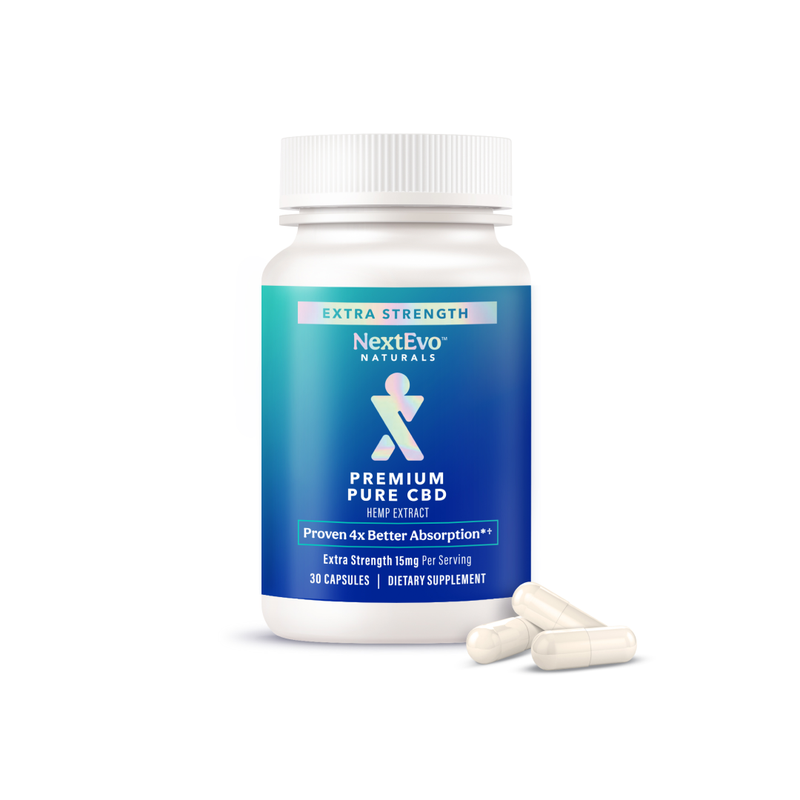
Cannabidiol (CBD) is everywhere. But beyond its favored reputation in the health and wellness sphere, what is it, exactly? In the simplest terms, it’s a naturally occurring compound with several potential benefits. But some preparations are better than others, and current research is helping to determine the most efficacious form of CBD since some forms do absorb better. Today, many products on the market are oil-based formulations (lipid-soluble) that aren’t all that compatible with how your body absorbs various substances and ingredients.
In This Article
While it’s easy to get caught up in whether to try a CBD gummy or tincture, it’s more beneficial to focus on the type of CBD and the formula that went into creating the final product. It can tell you a lot about how well your body will be able to absorb it and, therefore, how impactful it can actually be. And as an advocate for your best self, understanding how your body absorbs CBD can help you choose products that will give you the best results.
Why Lipid-Based Products Fall Short
Studies have found that your body absorbs lipid-soluble (oily) CBD poorly. For example, in one study, researchers analyzed the anti-inflammatory activity of two CBD oral preparations — one a water-dispersible (often referred to as water-soluble) powder and the other a lipid-soluble CBD powder. In this study, human test subjects consumed a single 30-milligram dose. After 90 minutes, blood samples were collected for the next six hours and analyzed for CBD concentrations. The results, published in Phytotherapy Research, showed that the lipid-soluble CBD was 4.5 times less bioavailable (which refers to how much of a nutrient is absorbed into your bloodstream).
Here’s what it boils down to. For CBD to be effective, it must be highly absorbable through cell walls, made of ingredients your body can easily absorb into the bloodstream. Oil is not one of those ingredients, and in fact, your body flushes out up to 95 percent of oil-based CBD formulas.
Improving the Absorbability of CBD
Reducing the particle size of CBD molecules is one way to improve how your body absorbs CBD, but there’s more to creating quality CBD products. It comes down to emulsion and using the right mix of ingredients. You might wonder what an emulsion really is. In official terms, according to the Handbook of Adhesives and Surface Preparation, “An emulsion is a stable dispersion of two or more immiscible liquids held in suspension by small percentages of substances called emulsifiers.” Sounds fancy, but immiscible simply means that the two liquids do not mix — such as oil and water. And emulsifiers allow them to mix without separating, improving the bioavailability.
What does all this mean for CBD? Emulsion formulas absorb better. In one study, researchers enlisted 16 adults and compared five different oral cannabidiol preparations: a CBD tincture Base, a CBD powder in water, a 20% CBD concentration liquid, a 5% CBD concentration powder and a 5% CBD concentration liquid (NextEvo’s formulation). All participants received a 30 mg dose, and then researchers measured the circulating concentrations of CBD in the subjects’ bloodstream at varying intervals. Results showed that the 5% concentration liquid improved the bioavailability of CBD and entered the bloodstream faster. It evoked the highest circulating CBD concentration and had the shortest time to maximal concentration.
Poorly Formulated = Poorly Absorbed
When choosing a CBD, it’s essential to look at the research behind the product you’re considering. What does the science say? The bottom line is most products on the market today are not formulated with our bodies in mind and fail to account for the body’s ability to absorb certain ingredients better than others. Many fail to consider emulsion in their formulations.
Because CBD is a lipophilic molecule, it needs to be incorporated into an emulsion. It needs emulsifiers for your body to be able absorb it more effectively, improving pharmacokinetics and making it more bioavailable. That’s how you’ll experience the best possible results and unlock the full potential of CBD in your wellness routine.
Deila Taylor received a bachelor's degree in biochemistry from Occidental College, an MEd specializing in E-learning, and graduate work towards a Ph.D. in pharmacology and nutrition at the Keck School of Medicine of the University of Southern California.
Sources
ScienceDirect - Handbook of Adhesives and Surface Preparation, 2011
Pharmaceuticals - Comparison of Five Oral Cannabidiol Preparations in Adult Humans: Pharmacokinetics, Body Composition, and Heart Rate Variability










